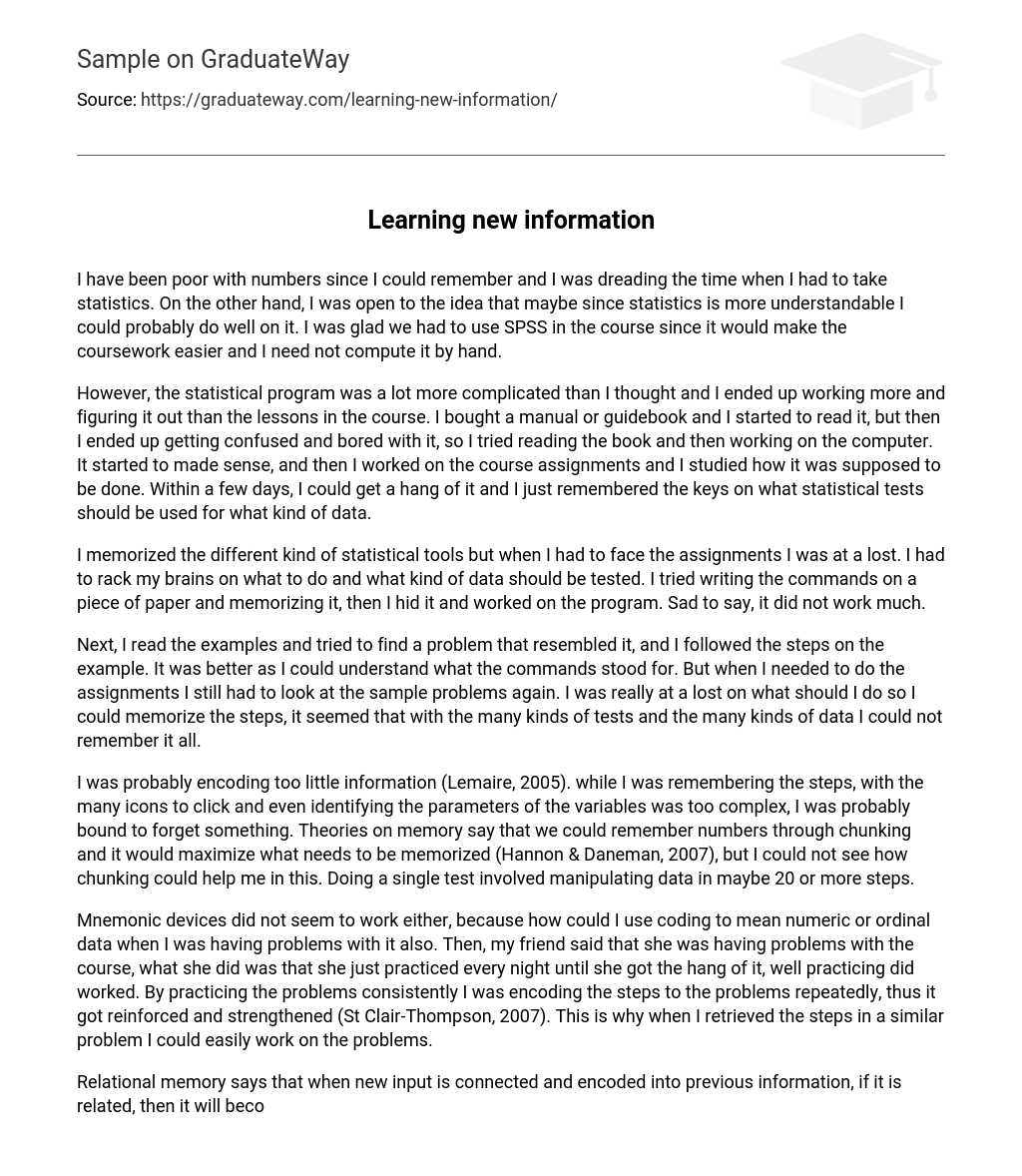I have been poor with numbers since I could remember and I was dreading the time when I had to take statistics. On the other hand, I was open to the idea that maybe since statistics is more understandable I could probably do well on it. I was glad we had to use SPSS in the course since it would make the coursework easier and I need not compute it by hand.
However, the statistical program was a lot more complicated than I thought and I ended up working more and figuring it out than the lessons in the course. I bought a manual or guidebook and I started to read it, but then I ended up getting confused and bored with it, so I tried reading the book and then working on the computer. It started to made sense, and then I worked on the course assignments and I studied how it was supposed to be done. Within a few days, I could get a hang of it and I just remembered the keys on what statistical tests should be used for what kind of data.
I memorized the different kind of statistical tools but when I had to face the assignments I was at a lost. I had to rack my brains on what to do and what kind of data should be tested. I tried writing the commands on a piece of paper and memorizing it, then I hid it and worked on the program. Sad to say, it did not work much.
Next, I read the examples and tried to find a problem that resembled it, and I followed the steps on the example. It was better as I could understand what the commands stood for. But when I needed to do the assignments I still had to look at the sample problems again. I was really at a lost on what should I do so I could memorize the steps, it seemed that with the many kinds of tests and the many kinds of data I could not remember it all.
I was probably encoding too little information (Lemaire, 2005). while I was remembering the steps, with the many icons to click and even identifying the parameters of the variables was too complex, I was probably bound to forget something. Theories on memory say that we could remember numbers through chunking and it would maximize what needs to be memorized (Hannon & Daneman, 2007), but I could not see how chunking could help me in this. Doing a single test involved manipulating data in maybe 20 or more steps.
Mnemonic devices did not seem to work either, because how could I use coding to mean numeric or ordinal data when I was having problems with it also. Then, my friend said that she was having problems with the course, what she did was that she just practiced every night until she got the hang of it, well practicing did worked. By practicing the problems consistently I was encoding the steps to the problems repeatedly, thus it got reinforced and strengthened (St Clair-Thompson, 2007). This is why when I retrieved the steps in a similar problem I could easily work on the problems.
Relational memory says that when new input is connected and encoded into previous information, if it is related, then it will become part of the neural network of stored memories (Kumaran & Maguire, 2005). Since new information is related to previous memory then recalling it is lot easier and faster. I could notice that when I worked on a similar problem I could visualize the steps; I could see how it should be done, that’s when I knew that I have really memorized the process. References Hannon, B.
& Daneman, M. (2007). Prospective memory: The relative effects of encoding,retrieval, and the match between encoding and retrieval. Memory, 15; 5, 572 – 604.
Kumaran, D. & Maguire, E. (2005). The human hippocampus: Cognitive maps or relationalmemory? The Journal of Neuroscience, 25; 31, 7254-7259.
Lemaire, P. (2005). Strategic Aspects of Human Cognition: Implications for UnderstandingHuman Reasoning. (pp.
11-29) in Roberts, M. (Eds), Cognitive Strategies and Human Reasoning. London: Psychology Press.St Clair-Thompson, H.
(2007).The influence of strategies on relationships between workingmemory and cognitive skills. Memory, 15; 4, 353 – 365.





